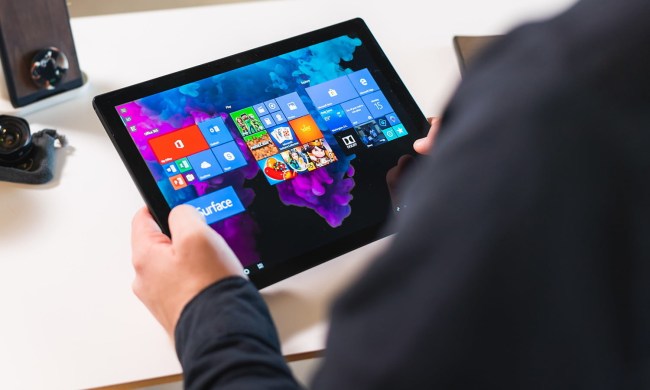
Updated on 07-29-2016 by Kevin Parrish: Added Microsoft’s response to Tim Sweeney.
“Tim is a respected figure in the gaming world, and we value his feedback,” a company representative told Game Informer via email. “As stated previously, the Universal Windows Platform is a fully open ecosystem that is available to every developer, and can be supported by any store. It’s early, and we recognize there is still work to be done, but we want to make Windows the best development platform regardless of technologies used.”
As previously reported, Sweeney publicly made a third attempt to bring the gaming industry to its senses in a rant last week, preaching that Microsoft’s platform is anything but open despite the company’s claims.
“The trouble started when Microsoft began shipping some PCs and regular Surfaces that were so locked down that you couldn’t run Win32 apps; you could only run apps that had been bought from their store. That is a complete travesty.” he said in a recent interview found in Edge magazine issue No. 296.
If he’s referring to Windows RT, then no, users could not run Win32 apps because the devices were based on ARM processors. That’s a completely different processor architecture, so customers with Windows RT devices couldn’t get Windows-based apps anywhere else but from Microsoft. However, it’s worth noting that Windows RT has quietly faded away. Sweeney’s complaints, however, go further.
“With Windows 10 they removed some more capabilities,” Sweeney added. “They’ve been able to do this via some sneaky PR moves. They make a bunch of statements that sound vaguely like they’re promoting openness, but really they’re not promising anything of the sort.”
Sweeney is concerned that if Microsoft convinces game developers to only use its UWP model, then Win32 programs will be phased out. To his defense, Microsoft offers specific features for games in Windows 10. However, those features cannot be accessed unless the developer uses Microsoft’s UWP model. Even more, these UWP apps cannot be sold outside the Windows Store, thus essentially turning the Windows 10 gaming ecosystem into a closed platform.
“It won’t be that one day they flip a switch that will break your Steam library — what they’re trying to do is a series of sneaky maneuvers,” he said. “They make it more and more inconvenient to use the old apps, and, simultaneously, they try to become the only source for the new ones.”
The big scary aspect to all this is what will become of Steam. Valve Software’s digital distribution platform is the largest PC gaming outlet, where millions upon millions of customers purchase and store their PC games online. As it seems now, developers can create games the usual way for the Windows platform and distribute their products across a number of distributors, or succumb to the special Windows 10 features and only sell their games through the Windows Store.
“Slowly, over the next five years, they will force-patch Windows 10 to make Steam progressively worse and more broken,” he said. “They’ll never completely break it, but will continue to break it until, in five years, people are so fed up that Steam is buggy that the Windows Store seems like an ideal alternative.”
Apparently, that is what Microsoft did with competitors in other markets, although Sweeney didn’t list examples. Instead, he indicated that Microsoft is essentially trying to drive Steam out of business. Microsoft may not succeed, but it seems obvious that the company is indeed trying.
Sweeney initially attacked Microsoft’s UWP efforts back in March, and his claims were immediately refuted by Microsoft’s Phil Spencer. Later, Sweeney said that Epic was in “substantive” discussions with “high-level Microsoft folks,” but there seemed to be no conclusion in sight. However, he seems thrilled about the Play Anywhere strategy.
“All game developers and ecosystem companies should work together to make the experience as seamless as possible for customers,” he said.
With Microsoft’s response to Sweeney’s latest rant now live, we’re eager to see what the Epic Games founder will stir up next.


